Search
Search Results
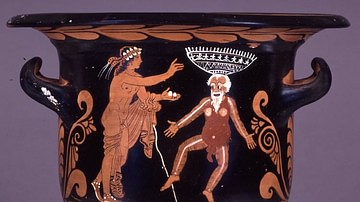
Image
Comic Scene, Bell-krater, Paestum
A red-figure bell-krater from Paestum 360-340 BCE. In a scene from Greek comedy, Dionysos is depicted with a comic actor balancing a basket on his head. The actor is in typical costume - padded stomach, added phallus and bearded mask.
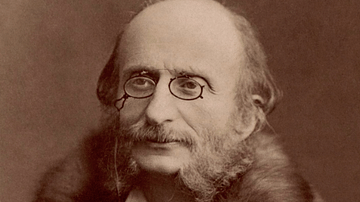
Definition
Jacques Offenbach
Jacques Offenbach (1819-1880) was a composer of German birth who took French citizenship and became famous in Paris for his comic operettas, a genre he created, and for the more serious opera, The Tales of Hoffmann. A virtuoso cellist, conductor...
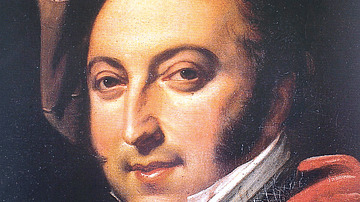
Definition
Gioachino Rossini
Gioachino Rossini (1792-1868) was an Italian composer of around 40 operas, including the comic operas The Italian Girl in Algiers and The Barber of Seville. Rossini championed melody and beautiful singing over operatic drama, rattling out...
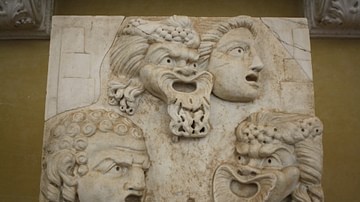
Definition
Aristophanes
Aristophanes (c. 460 - c. 380 BCE) was the most famous writer of Old Comedy plays in ancient Greece and his surviving works are the only examples of that style. His innovative and sometimes rough comedy could also hide more sophisticated...

Definition
Ancient Greek Comedy
Ancient Greek comedy was a popular and influential form of theatre performed across ancient Greece from the 6th century BCE. The most famous playwrights of the genre were Aristophanes and Menander and their works and those of their contemporaries...
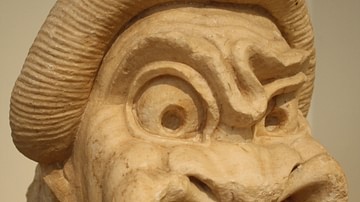
Article
The Plays of Cratinus
Cratinus was a highly successful writer of Attic Old Comedy, but the very fragmentary nature of his surviving plays means that he is not as well remembered as Aristophanes (eleven of whose plays come down to us intact). Despite this, it is...
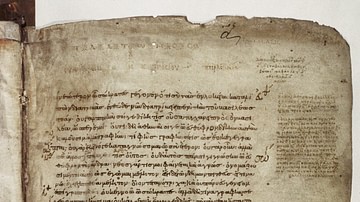
Article
Plato's Euthyphro: An Overlooked Comedy
Plato's Euthyphro is a Socratic dialogue on the concept of piety whose meaning and purpose continue to be debated. In reading the work only as a serious inquiry into the definition of an abstract concept, however, one is apt to miss the comical...
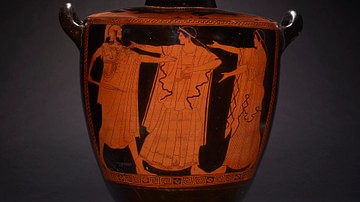
Definition
Helen (Play)
Helen is a Greek tragedy by Euripides (c. 484-407 BCE). It is usually thought to have first been performed at the Great Dionysia of 412 BCE and was part of the trilogy that included Euripides' lost Andromeda. Helen recounts an unusual version...
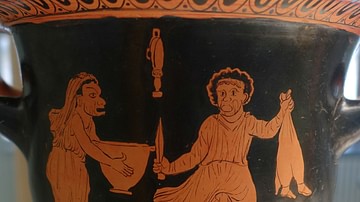
Definition
Thesmophoriazusae
The Thesmophoriazusae (also called The Poet & the Women or Women at the Thesmophoria) is a two-act comedy play written in 411 BCE by the great Greek comic playwright, Aristophanes. The play's principal focus is on the Greek tragedian...
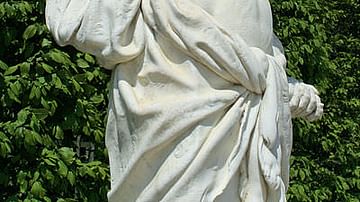
Article
The Shield of Heracles: The Complete Poem
The Shield of Heracles (also known as The Shield of Herakles and, in the original, Aspis Herakleous) is a poem of 480 hexameter lines written by an unknown Greek poet in the style of Hesiod (lived 8th century BCE). It deals with the Greek...